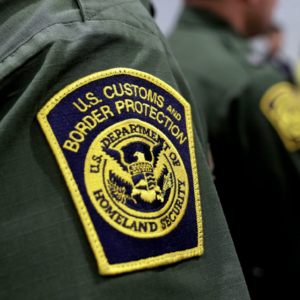As the chaos at our Southern border dominates headlines, it is easy to overlook the mounting vulnerabilities along our Northern border, despite the distance that separates them. New Hampshire, situated over 2,000 miles away from border towns like El Paso, Texas, may seem insulated from the border crisis, but that assumption couldn’t be further from the truth.
Recent statistics paint a disturbing picture that demands our attention. The Swanton Sector, encompassing Vermont and parts of New York and New Hampshire, has witnessed an astonishing 846 percent surge in illegal crossings compared to the previous fiscal year.
To add to the growing concerns, U.S. Customs and Border Protection data reveal that in 2022 alone, border officials encountered 380 individuals with records on the watchlist attempting to pass through ports of entry. Astonishingly, 313 of those encounters occurred at the Northern border’s ports of entry, while only 67 were reported along the southwestern border. Those figures highlight the urgent need to address our Northern border’s vulnerabilities.
Securing our Northern border is not only about preventing illegal crossings; it is about safeguarding our communities from the flood of drugs, including deadly fentanyl, that continues to devastate lives across the country, with 2022 being the worst year for overdose deaths in the New Hampshire since 2017. Dealing with these issues is a few reasons Granite Staters should be thankful Gov. Chris Sununu was able to secure additional state funds for border security.
The prevailing notion that the border crisis is confined to Southern states is a fallacy perpetuated by a misguided focus on a single region. The policy mistakes of our current and previous presidents have blurred the lines between border and non-border states, transforming every state into a de facto border state. Now, New Hampshire, along with other states far removed from the Southern border, faces the consequences of those policy failures.
You don’t have to be a betting man to have been able to predict that this was going to happen. The Biden administration projected a giant neon sign declaring, “We’re open.” His administration is failing to enforce our asylum laws as they are written. He lacks interest in delivering the appropriate consequences when immigration laws are broken. Sadly, all these failures under President Joe Biden’s leadership have contributed to the current crisis spiraling into a situation that demands urgent attention. The lack of a strong and coherent border strategy and misguided policies has only emboldened those seeking to exploit our porous borders.
As a former congressman representing the largest southern border district and a former overseas CIA officer, I’ve been dealing with threats to our homeland security and Americans’ well-being for my entire adult life. Dealing with border security and addressing the rising number of undocumented immigrants crossing our borders – while getting increasingly complicated – just needs common sense to fix it.
To effectively secure our Northern border, we must take decisive steps. First and foremost, we must increase Border Patrol staffing levels along the Northern border sectors, providing our agents with the necessary resources and personnel to effectively patrol and protect our nation’s sovereignty. Additionally, we need to invest in modern technology and infrastructure to monitor and secure the vast stretches of the border that lie between our ports of entry. Furthermore, we must prioritize collaboration and information sharing with our Canadian counterparts. A secure Northern border requires a joint effort, and we must strengthen our partnerships to enhance intelligence sharing, coordination, and joint operations to combat transnational criminal organizations.
Securing America’s borders should not be a partisan issue—it is a matter of national security. It is time for our leaders to prioritize the safety and well-being of our citizens by fortifying our Northern border. Let us come together, learn from past mistakes, and take the necessary steps to address the crisis at hand. The time for action is now.




